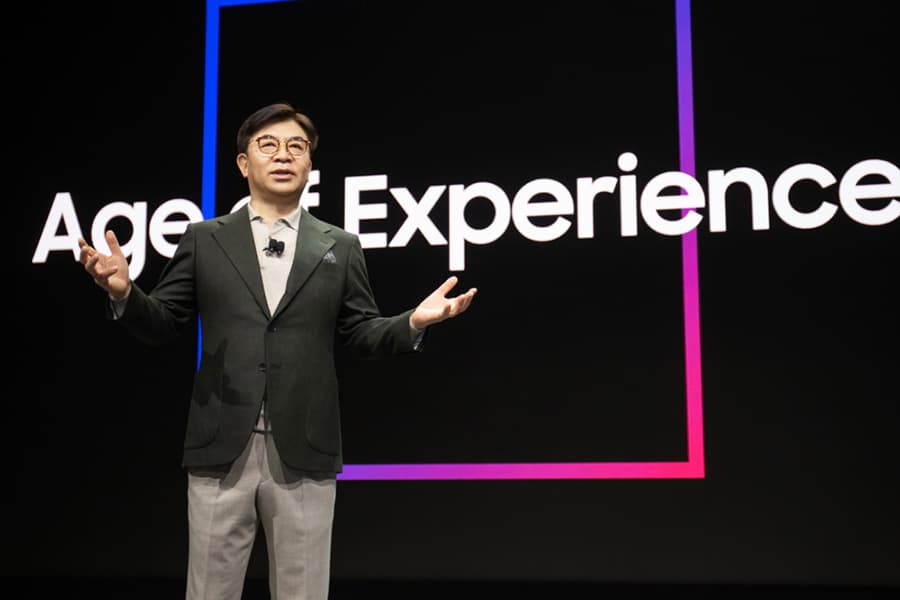Samsung reveals how it is transforming the assistive technology landscape for elderly and disabled people at CES 2020

At CES 2020, an exhibition showcasing the latest in innovative consumer technologies, electronics giant Samsung showcased a range of assistive technologies and digital healthcare solutions which aim to transform the lives of elderly and disabled people.
Revealing the personalised solutions which help people live more independently at Samsung’s keynote “Age of Experience” at CES 2020, Samsung Consumer Electronics President and CEO H.S. Kim discussed how technology can make life more convenient, enjoyable and meaningful.
“In the Age of Experience, we need to re-think the space we have to accommodate our diverse and evolving lifestyles,” said H.S. Kim. “What makes Samsung’s approach unique is the fact that we have a very clear philosophy built around human-centered innovation. We build and create to solve problems and enhance people’s lives.”
In the keynote, Samsung revealed the latest in personal robots, wearable technologies, smart homes and cities, artificial intelligence, and technology for elderly and disabled people.
Robotic companions
Delivering personalised care, H.S. Kim discussed Samsung’s vision of robots as “life companions”, which can enhance the health and wellbeing of individuals.
He then introduced Ballie, a small, rolling robot that understands an individual’s needs and helps them around the house; it is Samsung’s embodiment of a personal robotic companion.
Ballie incorporates artificial intelligence (AI) that acts as a fitness assistant and mobile interface to find solutions for changing needs. At the keynote, Samsung showcased what Ballie can do, which includes everything from helping users exercise and manage their smart devices to recording and storing special moments.
Ballie could be used to reduce the need for care intervention and enhance the lives of elderly and disabled people at home.
HeartWise app
Also at CES 2020, Samsung showcased virtual cardiac rehabilitation solution HeartWise.
Samsung collaborated with Kaiser Permanente to develop the home-based rehabilitation solution that pairs a Samsung smartwatch with a smartphone via Bluetooth.
The HeartWise application sends reminders to the patient to exercise, collects activity data, and continuously displays the patient’s heart rate during workouts. This data is automatically uploaded via the smartphone to the patient’s chart so that clinicians, case managers and physical therapists can track the patient’s progress and engage with them accordingly.
HeartWise removes the need for patients to travel to a hospital or clinic as they can participate in cardiac rehabilitation at home, saving both time and resources.
Since its launch in 2018, completion rates of the HeartWise app have more than doubled that compared to traditional rehabilitation.
Smart homes and cities
In the “Age of Experience” keynote, Samsung also revealed how cutting-edge sensors, AI and data analysis will facilitate smart homes and cities in the future.
Federico Casalegno, Chief Design Innovation Officer of Samsung Design Innovation Center, highlighted how spatial boundaries of the physical and digital worlds are dissolving, transforming living spaces into bespoke experience-spaces, like an art gallery or yoga studio.
According to Samsung, rooms in the home can be transformed with a screen, which combines software, AI, the internet of things (IoT) and hardware to create new experiences in the home. This technology can connect loved ones together as if they’re in the same room, which could be useful for people with dementia to connect with others remotely to reduce feelings of loneliness and isolation.
Smart homes could also transform the kitchen for elderly and disabled people. For instance, Samsung revealed Bot Chef, a robotic food preparation assistant, which could help people with reduced mobility prepare meals with ease.
In a similar way, Samsung’s view of smart cities could make living in a city more engaging, safe and efficient for a variety of people.
For instance, intelligent systems, AI, IoT and 5G in smart buildings could help people with mobility to call elevators, turn lights off and manage deliveries entirely by voice command.
GEMS technology
At CES 2020, Samsung also showcased its GEMS (Gait Enhancing & Motivating System) technology.
GEMS pairs with AR glasses and a Samsung Galaxy smartwatch to create a customised fitness experience for individuals. It can be helpful for people with certain health conditions, for instance, to improve their balance, encourage them to walk more and reduce their fear of falling.
The assistive device can be used intelligently to manage long-term health conditions and promote exercise.

